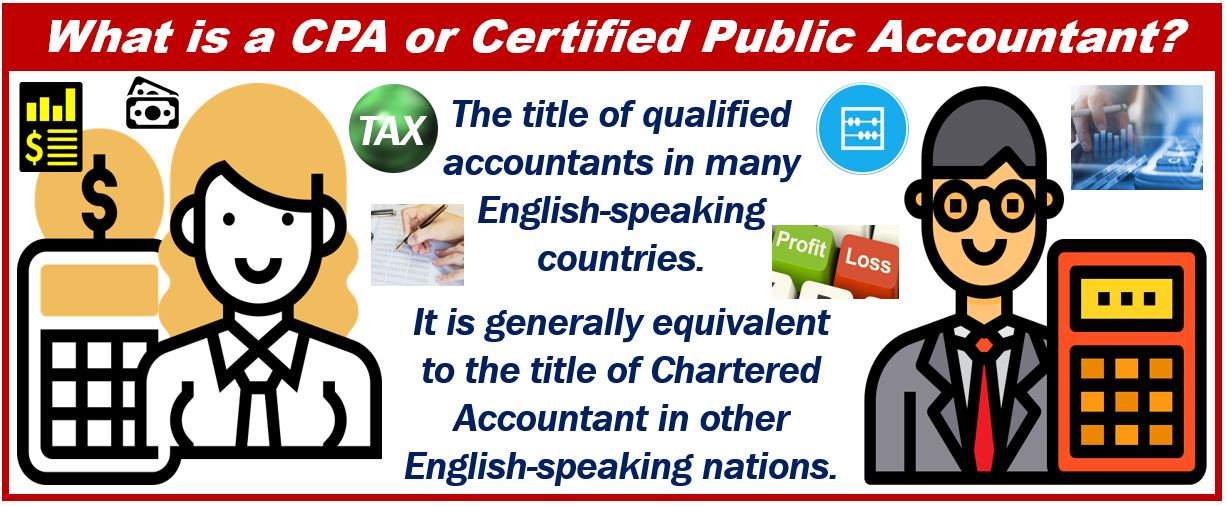If you’re looking for a stable career with good earning potential and an opportunity to work in a line of business where you can truly make a difference in the lives of your clients, then you might but cut out to be a Certified Public Accountant (CPA). However, reaching this status requires a very specific (and somewhat challenging) path.

CPA vs. Non-Certified Accountant
If you want to pursue a career as an accountant, there are a couple of paths you can take. You can become a standard accountant or you can become a CPA. While both are highly respected career paths, a CPA is clearly a cut above (in terms of required skill and education).
“A Certified Public Accountant is allowed to perform certain duties that regular accountants are not permitted to do, such as preparing an audited financial statement, or acting as a taxpayer or company representative in discussion with IRS Revenue Officers or Counsel,” FreshBooks explains. “An accountant without the CPA designation cannot do any of these things.”
Currently, just 50 percent of accountants in the United States have a CPA designation. (And the annual growth rate of CPAs is just one percent.) However, the average annual growth rate for accountants is 10 percent. This means the percentage of accountants with CPA qualifications will soon drop below 50 percent – making it an even more highly sought after designation.
The Journal of Accountancy reports that the average CPA salary in the U.S. is $119,000 (not including bonuses and benefits). New CPAs earn an average of $66,000 in their first year, while those with 20-plus years of experience earn an average of $152,000 annually.
3 Tips for Becoming a CPA
There are plenty of reasons to become a CPA. The work is rewarding, the money is good, and the job market is stable. But don’t expect it to be easy. In order to achieve the status of CPA, you must do the little things right.
Here are some tips for becoming a CPA:
1. Get the Right Degree
The first step is to get the appropriate degree. Educational eligibility requirements vary by state, but most require you to get 150 hours of coursework in accredited programs. You can do this in a number of ways, including:
- Bachelor’s degree in accounting plus a master’s degree in accounting
- Bachelor’s degree in another area of expertise plus a master’s degree in taxation or accounting
- Dual program that includes both a bachelor’s and master’s in accounting
- A bachelor’s degree in accounting plus an additional 30 semester hours of graduate-level coursework in accounting and taxation.
If you already have a college degree and are in the process of making a career pivot, your best option is to take a concentrated master’s program that focuses on taxation or accounting.
2. Pass the CPA Exam
The next step is to take and pass the CPA exam.
The CPA exam is broken up into four different tests – each of which must be passed. They include Auditing and Attestation (AUD), Financial Accounting and Reporting (FAR), Regulation (REG), and Business Environment and Concepts (BEC).
The CPA exams, which must be completed in a period of 18 months, are formatted into a combination of multiple choice questions and task-based simulations.
3. Complete Continuing Education Hours
Obtaining your CPA license is the hard part, but you can’t check out now. In order to maintain your CPA status, you’ll have to complete continuing education hours on an ongoing basis. Every state has its own requirements, but it’s usually somewhere in the neighborhood of 120 hours every three years.
The great thing about continuing education is that you’re able to do it at your own pace. You can knock everything out in a two or three month period, or you can pace yourself over several years. You’re also able to choose the courses and curriculum that interest you the most. This ensures you’re learning information that actually benefits you in your career as a CPA.
Adding it All Up
If you want to achieve everything that there is to accomplish in an accounting career, becoming a CPA is one of the first steps in that climb. And while the process of becoming a CPA is littered with challenges, it’s also rewarding – professionally, financially, and otherwise. With the right strategy and discipline, you can make this dream a reality.
Interesting related article: “What is an Accountant?“

